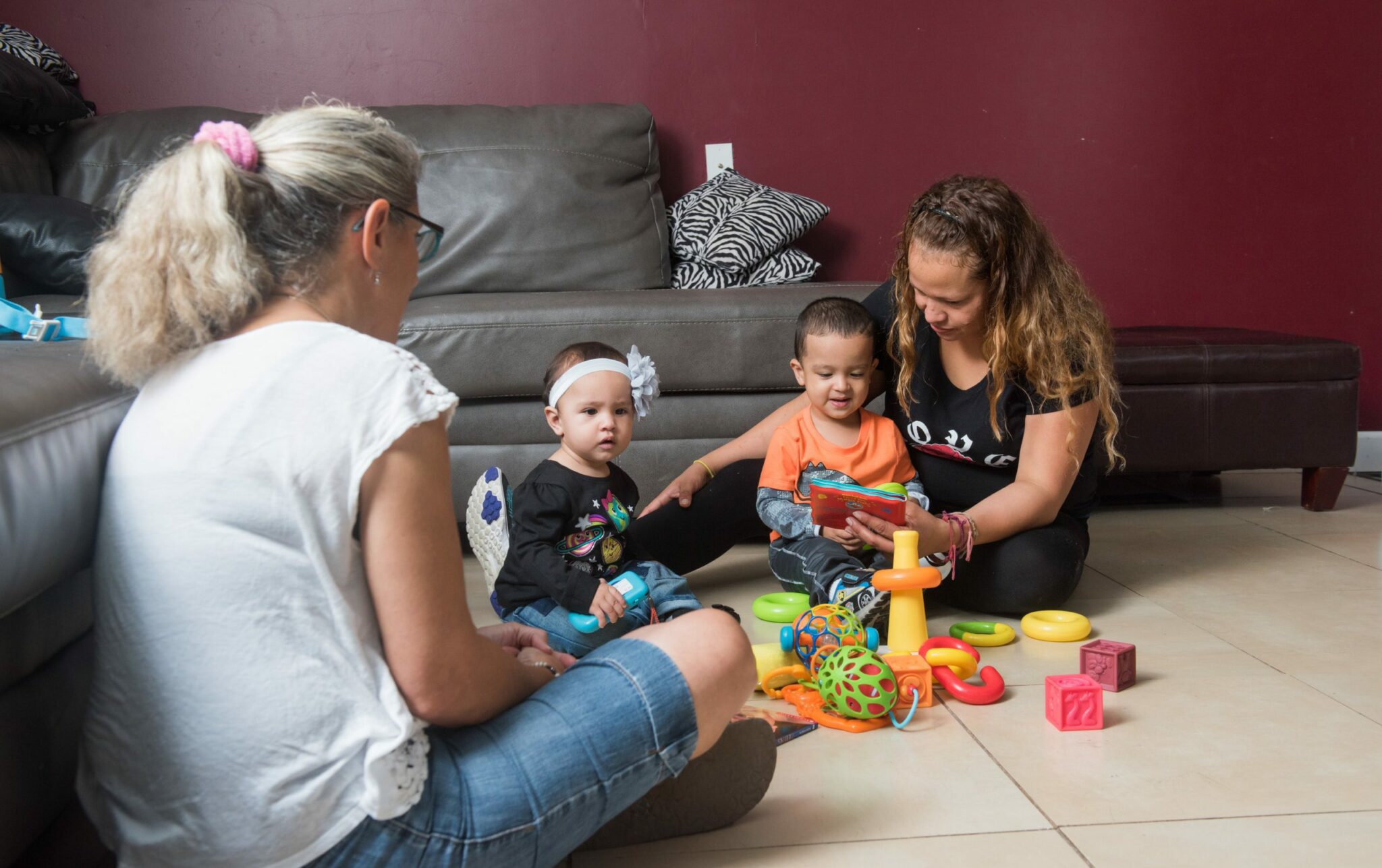A 10-week early childhood home-visiting intervention piloted by five Kansas foundations shows promising impacts for young children and their family caregivers. An evaluation of the Attachment and Biobehavioral Catch-up (ABC) Project implemented in five sites found that the initiative resulted in more comprehensive early childhood services across Kansas. In addition, families that participated in the ABC program demonstrated more positive outcomes, including healthier children, more confident parents and stronger families.
The ABC program is an evidence-based parenting intervention for families of infants and toddlers who have experienced early adversity. Developed by Mary Dozier, Ph.D., Unidel Amy E. du Pont Chair in Child Development, University of Delaware, the program is delivered in the home by trained parent coaches to guide parents and other caregiving adults in ways to nurture and respond sensitively to their children as a strategy for minimizing the effects of toxic stress and supporting healthy child growth and development.
The ABC program was led by the United Methodist Health Ministry Fund with support from the Hutchinson Community Foundation, Kansas Health Foundation, REACH Healthcare Foundation and the Wyandotte Health Foundation. The implementation evaluation and impact study were conducted by the University of Kansas School of Social Welfare.
Over three years, the ABC Project impacted the lives of families in 36 counties; 536 families were screened for toxic stress, 402 families were enrolled to receive the ABC intervention, and 682 caregivers and 907 children were impacted. Throughout the implementation, 39 infant parent coaches and 10 toddler parent coaches were trained.
After completing the ABC program, the evaluation found:
- Caregiver concerns regarding child social-emotional functioning decreased;
- Children’s cortisol levels, an indicator of stress, became more normalized;
- Parent coaches rated children’s overall well-being as more positive;
- Parents and caregivers’ knowledge and belief in their caregiving abilities increased;
- Parent interactions with children showed improved sensitive responses
The initiative also resulted in expanded capacity for early childhood services in Kansas. The state provided Family First Prevention and Services funds to support ABC projects as part of child welfare prevention strategies. Likewise, the Kansas Department of Education recognized ABC as an approved program for equity funds at the state level, and Medicaid reimbursed mental health providers using ABC for eligible children. In addition, ABC was part of seven legislative hearings, two legislative bills and more than 14 presentations.
“The findings from the ABC Early Childhood Initiative show us that appropriate coaching, encouragement and resources for families experiencing persistent, toxic stress make a real difference in how children grow and thrive. This multi-site project demonstrates the life-altering benefits of investing in child health and family well-being from the start.” Brenda Sharpe, REACH Healthcare Foundation President and CEO.
The REACH Foundation awarded grants totaling $287,295 total in awards for the initiative, including support for the Project Eagle program site in Wyandotte County, KS.
ABC Early Childhood Initiative Evaluation Press Release
ABC Early Childhood Initiative Policy Brief
Kansas ABC Early Childhood Initiative Evaluation Report



